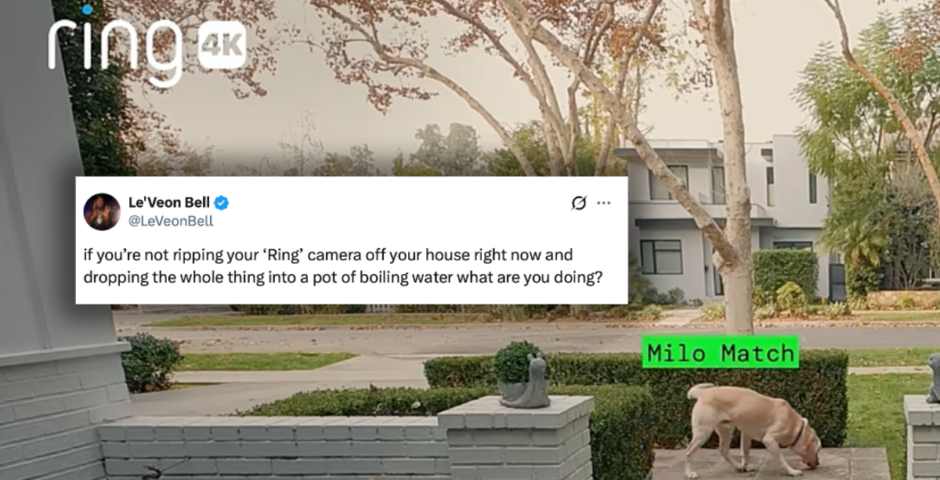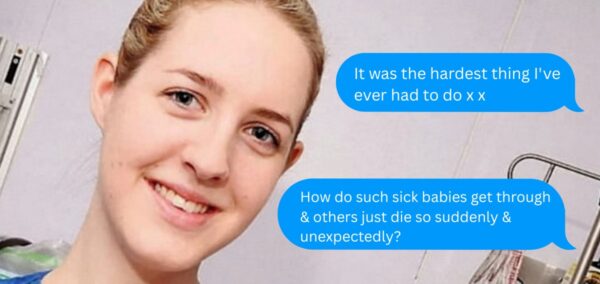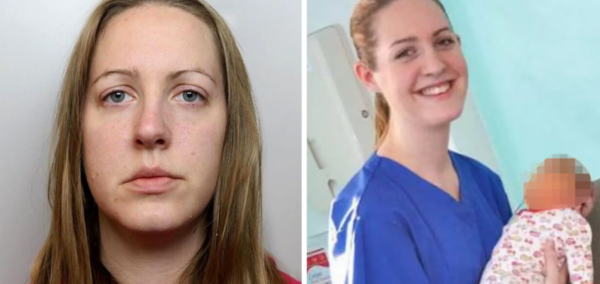
‘Off my campus’: ‘Women’s liberation’ event at UCL sparks student protest for trans rights
‘Our existence should not be a debate,’ protesters said
On Saturday, 4th February, students led by the UCL LGBTQ+, Trans, and Women’s Networks protested outside the venue of what they described as a “hateful” and “trans-exclusionary” event at the university.
The controversial event was a conference called “Education for Women’s Liberation#Ed4WomensLib.” Organisers described their aim as to “bring feminism back into the lecture theatres.” But students thought the content and speakers fostered a “trans-exclusionary environment featuring many ideas based on sex-based traits.”
The police were called to the campus during the protest in response to “disorder associated with a demo.” Allegations have been circling on social media of protesters banging on the windows during conference sessions and cursing at people inside. One attendee, in particular, claimed they were assaulted by “a hooded gentleman” while trying to film the protesters.
But students who attended the protests said claims of verbal and physical violence were “not true at all” and they did not know who the man accused of assault was. They said: “We were standing on UCL property exercising our right to protest and not breaking any rules. We never used derogatory terms of any nature, especially of those used against women. The police was on site at all times and they never had a problem with anything the protesters were doing.”
The conference was primarily organised by Women’s Place UK (WPUK) and UCL Women’s Liberation Special Interest Group (SIG). WPUK is a “grassroots feminist campaign” to “uphold women’s sex-based rights,” while the UCL Women’s Liberation SIG is a group of academics who research “the status and meaning of women’s rights.”
Both groups have been controversial for excluding transgender people in their discussions of feminism.
Most Read
WPUK has faced criticism from many LGBTQ+ equality groups, with the Labour Campaign for Trans Rights describing the group as a “trans-exclusionist hate group.”
UCL justified the withdrawal by saying that it might restrict academic freedom around sex and gender, but the Students’ Union UCL said it “has the potential to create an environment where gender prejudice and transphobic language is justified under the guise of academic freedom.”

UCL’s decision to disaffiliate from Stonewall has been met with numerous student protests (Credit: UCL LGBTQ+ Network)
Aside from the organisers, protesters also cited the speakers and topics of the conference as reasons behind their demonstration.
One academic present at the event was Jo Phoenix, who set up the Open University’s Gender Critical Research Network and is now taking the OU to an employment tribunal over the way her ex-colleagues and university responded to the establishment of the OUGCRN.
When contacted for comment, Jo Phoenix said: “The people who stood outside shouting, or tried to stop those inside from meeting, missed the opportunity to explore new ideas and to share their own perspectives.”
According to the organisers, some topics spoken about at the event included sex and gender education in schools, alleged limitations to research and education that came with “what can be said about sex and gender within higher education,” and public policies impacting women in education.
Respectively, the UCL Trans Network claimed what was discussed under these topics included how to teach children that sex is more important than gender, how to campaign for sex-based women’s rights and write gender-critical research, and why the Scottish Gender Reform bill was “dangerous.”
Students protesting also expressed disappointment at UCL for allowing this conference to take place.
The organisers said the conference being held at UCL was partially because it was “the first UK university to admit women on equal terms to men.”
But the UCL Trans Network argued that UCL platforming these controversial speakers “actively harms trans students and staff.” Referencing back to UCL’s Stonewall disaffiliation, they also said this conference represented the university’s further failure to “keep its trans students and staff safe.”
The students’ views are shared by two UCL academics of qUCL, a research group on gender and queer studies. The lecturers wrote before the conference that they’re “deeply concerned” about UCL hosting speakers and organisations “well known to promote anti-trans and anti-queer views.”
Individual students also spoke out about how the event affected them. George (he/they) told The London Tab: “The institutional transphobia at UCL is literally sickening.
“The stress causes me pain and rashes due to my pre-existing health condition as well as frequent nightmares. I tried so hard to get into UCL to find that when I arrived, it did not care about me.
“UCL cares more about allowing extremist hateful views in the name of freedom of speech than the lives and well-being of its trans students.
“Our existence should not be a debate. We are not and never have been a harm. We have done nothing wrong.”
In response, a UCL spokesperson told The London Tab: “We are aware that this was an event that some people feel strongly about, both in opposition and support.
“Reflecting our long tradition of safeguarding freedom of speech, we uphold the rights of our staff and students to facilitate debate and exercise their academic freedom of enquiry. We view the right to debate and challenge ideas as fundamental to the nature of a university, and are committed to ensuring that free and open discussion can take place in an atmosphere of tolerance for different viewpoints.”

In response to the backlash mentioned in the article, a spokesperson for WPUK said: “Woman’s Place UK are grateful to UCL, the first university in England to admit women on an equal basis, for hosting our sold-out event with over 900 attendees.
“Claims made by qUCL are not only offensive, but some are clearly defamatory, such as the equation of discussing women’s rights with eugenicists. Particularly egregious is the claim that our conference, and by implication our speakers, are in some way ‘limiting or undermining the rights of others.’ This claim reveals a profound ignorance and misrepresentation of the issues addressed at the conference, and of our speakers, many of whom are leading barristers working in the field of human rights law, including an EHRC commissioner. It is also patently absurd to imply that a conference visibly addressing and platforming women’s sexualities and gender non-conformity, where three out of the five invited keynote speakers were lesbians, is somehow in tension with UCL’s commitment to LGBT inclusion. Protestors outside the venue were under similar misapprehension. The conference was neither hateful nor exclusionary – tickets were on open sale and anyone could attend to make up their own mind.
They claimed: “Instead of doing so, or putting their case, a small group of protesters chose to shout and displayed highly offensive, misogynistic and obscene slogans – for example calling women ‘cunts’ – and at one point began aggressively banging on the windows of the lecture rooms in the wing of the building, where several conference workshop sessions were in process, yelling obscenities at the women inside. Police were called due to concerns that the escalating aggression on the part of the protestors may result in windows being smashed and/or attempts to violently enter the building. UCL security officers ended up standing in front of the building to prevent any such action, but the police presence did not deter the protestors from continuing to shout their vile slogans. It later transpired that a woman had been physically assaulted and had her property damaged by one of the protestors in the vicinity of the IoE. We understand that this incident, which was reported to the police, is under investigation.”
Related stories recommended by this writer:
• ‘Think twice about applying’: Students protest for trans rights during UCL open day
• Student ‘enraged and heartbroken’ to discover ‘anti-trans propaganda’ in UCL building
• Some UCL staff who voted to not rejoin Stonewall may have done so on ‘transphobic grounds’


















